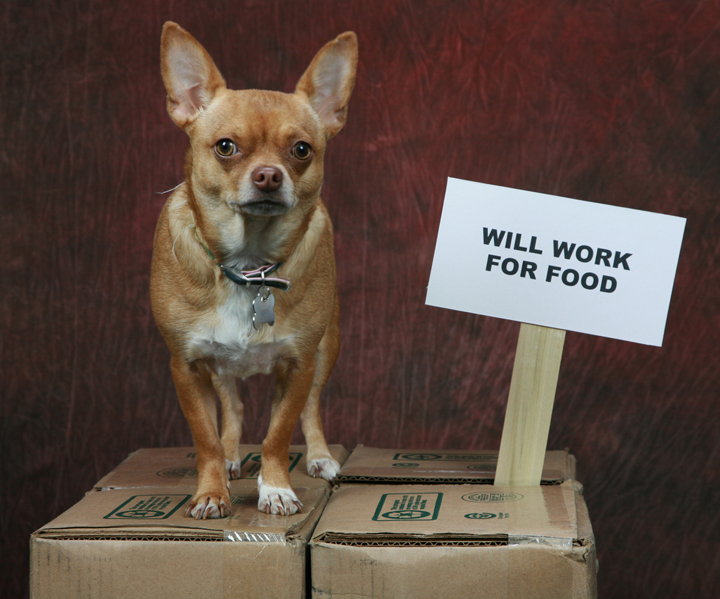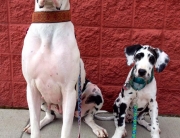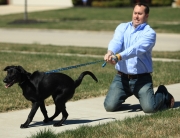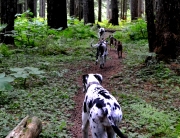Ever see someone on the side of the road with a sign that says “will work for food”? Well, the concept of “will work for food” is best applied to our dogs. They work best when they have to work for their resources. Luckily enough for us humans, food is the number one, top resource to most dogs. Which of course makes a food motivated dog an easy dog to train. But what if we extrapolate on that concept and change the way we as people see what food really means to dogs?
Try and picture your dog as an employee and you are the owner of a small business. Every piece of food, every toy, couch space, snuggle time, fun games, walks, hikes, chasing squirrels, treats, bones, dog park time, etc are all forms of income for your dog. If you offer all of these things for free, you’re essentially leaving $100 bills all over the place for your dog to freeload on. Not only do they lose respect for the resources, but they lose the ability to earn those resources as rewards for doing the things we want of them. Essentially leaving “money” all over, for free for your dog to take as they please is the same as someone who works a cushy job with a high income, full benefits, and flexibility that involves little to no productive work.
Resource control is the first thing I tend to change when training with dogs who have behavioral problems. It’s always amazing to see the changes that simple resource control can have on dogs who are pushy, rude or inappropriate. But one of the biggest oppositions I hear against using “food” for training is that people don’t want their dogs to become dependent on earning food. Or I hear “Oh, my dog will only sit if I have a cookie for him”. Which both have the potential to happen if you go too quickly from tight resource control such as hand feeding to not hand feeding at all. Change from stringent resource control needs to be gradual and varied over the course of weeks or months. Also, keeping your dog trainer “toolbox” full of resources to use is important as well. For example, if you ask for a sit, don’t always reward with a treat, reward with a fun game or lots of verbal praise.
Next time you dump food into your dog’s dish, think about each piece of food being worth $100 dog dollars. Pretty valuable huh?


















Leave A Comment